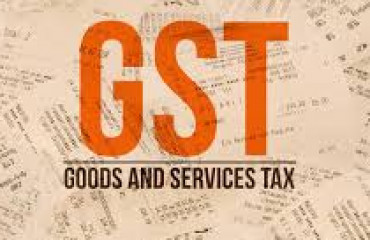
NEW DELHI : The recommendations of the Goods and Services Tax (GST) Council are not binding on either the Union government or the states, the Supreme Court ruled on Thursday, rejecting the Centre’s argument that the entire structure of GST would crumble if the Council’s mandates are not treated as enforceable.
NEW DELHI : The recommendations of the Goods and Services Tax (GST) Council are not binding on either the Union government or the states, the Supreme Court ruled on Thursday, rejecting the Centre's argument that the entire structure of GST would crumble if the Council's mandates are not treated as enforceable.
A bench headed by justice Dhananjaya Y. Chandrachud held that "the Parliament intended for the recommendations of the GST Council to only have a persuasive value, particularly when interpreted along with the objective of the GST regime, to foster cooperative federalism and harmony between the constituent units."
Underlining that Parliament and the state legislatures possess simultaneous power to legislate on GST, the court said "recommendations" of the GST Council, as enunciated under Article 279A of the Constitution, must be construed as only recommendatory in nature. "To regard them as binding edicts would disrupt fiscal federalism, where both the Union and the states are conferred equal power to legislate on GST," said the bench, which also comprised justices Surya Kant and Vikram Nath.
"The GST Council has the power to make recommendations on a wide range of subjects relating to GST. Since the Constitution does not envisage a repugnancy provision to resolve inconsistencies between the central and state laws on GST, the GST Council must ideally function, as provided by Article 279A(6), in a harmonized manner to reach a workable fiscal model through cooperation and collaboration," it added.
Revenue secretary Tarun Bajaj said the court's observations reiterated the scheme of things in the Constitution and in GST laws. At a briefing, Bajaj said the Council would continue to work in the way it has worked for the last five years. The apex court's observation came in the case of a tax dispute with a private firm over integrated GST on ocean freight. Bajaj said this was not a Centre-state dispute and that if any review petition at all were to be filed, it would only be in the context of that dispute.
A person familiar with the government's initial analysis of the judgement said the court observed that while the recommendation of the GST Council has persuasive value for primary legislation, that is, framing of law, they are binding in so far as subordinate legislation is concerned, that is, issue of notification, framing of rules and prescribing rates and taxes.
"This judgement does not in any way lay down anything new in so far as the GST institutional mechanism is concerned, does not have any bearing on the way GST has been functioning, nor lays down anything fundamentally different to the existing framework of GST," the person cited above said.
Bajaj said GST was introduced to have a unified market and remove cascading taxes and improve the ease of doing business. "If you look at GST Council's decisions, all decisions but one were taken by consensus," Bajaj said. The one decision on which voting took place was on the issue of taxation of lotteries.
"The fact is that, if Centre and states join hands, it is good for everyone," Bajaj said.
The top court disagreed with the Centre's arguments that the legislature and the executive are bound by the recommendations of the GST Council on three preliminary provisions, namely charge, exemption and rule-making power and that the entire structure of GST will collapse as each state would then levy a conflicting tax and collection mechanism. If the GST Council were intended to be a constitutional body whose recommendations transform into legislation without any intervening act, there would have been an express provision in Article 246A, which stipulates that both the Parliament and the State legislatures have the power to legislate on GST, the bench said.
"The argument that if the recommendations of the GST Council are not binding, then the entire structure of GST would crumble does not hold water. Such a reading of provisions of the Constitution diminishes the role of the GST Council as a constitutional body formed to arrive at decisions by collaboration and contestation of ideas," it emphasized.
The Union finance minister heads the GST Council and comprises the Union minister of state who is in charge of the revenue and finance ministers of state governments. The court ruling came on a batch of appeals filed by the Centre against a 2020 Gujarat high court judgement, which quashed the levy of IGST on importers on ocean freight under reverse charge. The high court held that no tax is leviable under the IGST Act, 2007, on the ocean freight for the services provided by a person located in a non-taxable territory, by way of transportation of goods by a vessel from a place outside India up to the customs station of clearance in India.
Even as the court affirmed the Centre's contention that an importer can be classified as the 'recipient' of the services and upheld the 2017 notifications on ocean freight, the court dismissed the plea on two separate levies on goods and services when an Indian importer is already made liable under the GST Act to pay IGST on the 'composite supply', comprising supply of goods and supply of services of transportation, insurance, etc.
